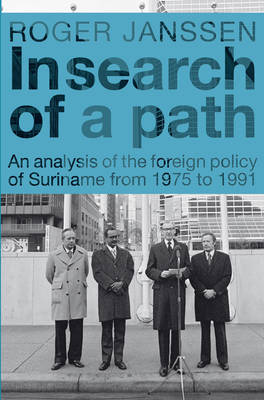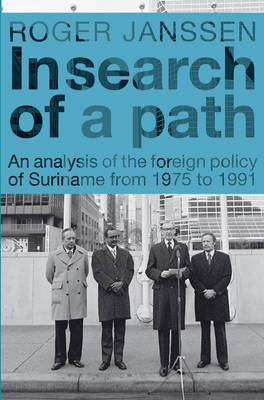
- Afhalen na 1 uur in een winkel met voorraad
- Gratis thuislevering in België vanaf € 30
- Ruim aanbod met 7 miljoen producten
- Afhalen na 1 uur in een winkel met voorraad
- Gratis thuislevering in België vanaf € 30
- Ruim aanbod met 7 miljoen producten
Zoeken
€ 39,47
+ 78 punten
Omschrijving
The foreign policy of small states is an often neglected topic, which is particularly the case when it comes to Suriname. How did the young Republic deal with its dependency on the Netherlands for development aid after 1975? Was Paramaribo following a certain foreign policy strategy or did it merely react towards internal and external events? What were the decision making processes in defining the foreign policy course and who was involved in these processes? And why was a proposal discussed to hand back the right of an independent foreign and defence policy to a Dutch Commonwealth government in the early 1990s?
These questions are examined here in depth, in the first comprehensive analysis of Suriname's foreign policy from 1975 to 1991. The book provides readers interested in Caribbean and Latin American affairs with a detailed account of Suriname's external relations. Moreover, the young Republic may stand as a case study, as it confronted the difficulties and challenges that small developing states often face.
These questions are examined here in depth, in the first comprehensive analysis of Suriname's foreign policy from 1975 to 1991. The book provides readers interested in Caribbean and Latin American affairs with a detailed account of Suriname's external relations. Moreover, the young Republic may stand as a case study, as it confronted the difficulties and challenges that small developing states often face.
Specificaties
Betrokkenen
- Auteur(s):
- Uitgeverij:
Inhoud
- Aantal bladzijden:
- 372
- Taal:
- Engels
- Reeks:
- Reeksnummer:
- nr. 27
Eigenschappen
- Productcode (EAN):
- 9789067183345
- Verschijningsdatum:
- 1/01/2011
- Uitvoering:
- Paperback
- Formaat:
- Trade paperback (VS)
- Afmetingen:
- 156 mm x 234 mm
- Gewicht:
- 521 g

Alleen bij Standaard Boekhandel
+ 78 punten op je klantenkaart van Standaard Boekhandel
Beoordelingen
We publiceren alleen reviews die voldoen aan de voorwaarden voor reviews. Bekijk onze voorwaarden voor reviews.











